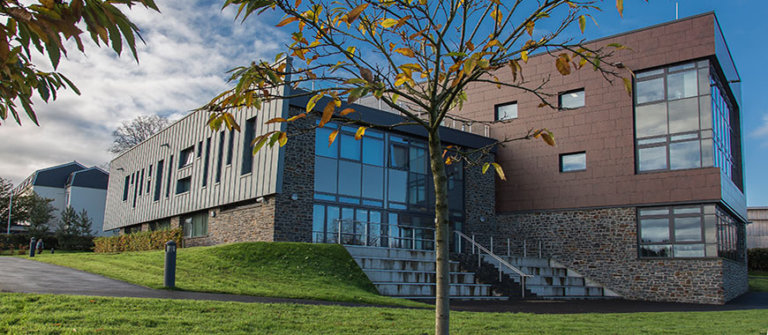
Today’s business leaders are faced with a tremendous challenge: that of ensuring that they implement sustainable practices in their organisations. A growing list of global environmental concerns means that taking a backseat is no longer an option — the world sorely needs corporate moguls to act now before the situation becomes too dire to contemplate.
Outside of these pressing concerns, there are many added benefits to introducing a sustainability strategy. For example, McKinsey reports that businesses with strong ESG (environmental, social and governance) principles are more likely to attract the attention of investors, who see the potential for long-term success. Other factors such as increased efficiency and gaining a competitive advantage are notable advantages of sustainability in business, as well.
Still, there remains a startling lack of action in this regard. Research shows that although 90% of executives think that sustainability is important, only 60% of companies have an active strategy for this.
Enter the growing landscape of Green MBA programmes. Many companies are beginning to recognise the value of an effective sustainability strategy, and are looking for graduates with the skills and expertise needed to implement these. Most importantly, they’re looking for individuals who are well-equipped to shape an inclusive and sustainable future for business and society.
Here are four business schools with MBA programmes that are designed with this intention:
University of Wales Trinity Saint David

The University of Wales Trinity Saint David hopes to provide boardrooms with executives with a comprehensive understanding of the greatest global environmental challenges. Source: University of Wales Trinity Saint David Facebook
As one of the first universities in the UK to fully underpin business programmes with sustainability, the University of Wales Trinity Saint David (UWTSD) is the place to be for any student looking to make a change. Its reputation speaks highly of its success in this regard; it secured a Green Gown award for developing Future Employees and is ranked first in the UK for student satisfaction in teaching quality among Business Studies subjects.
The Institute of Management and Health prepares its students for success through a number of its carefully curated programmes. Its MBA (Online) (Sustainability Leadership) is one of them. Aimed at early and mid-career working professionals seeking to shape the future of their organisations, this MBA provides the educational platform required to enter management or underpin a management position with the “key” understanding of how organisations can drive sustainability value as strategic change to transform their organisation, to be ready for 21st century challenges.
The MBA (Sustainability Leadership), taught entirely online and asynchronously, lets students pursue their degrees at their own time and pace. This means that programmes remain accessible to students from all over the world, drawing in a cohort of professional learners and academic staff who bring forth different contexts and experiences to the shared (online) classroom. Previous and existing cohorts have benefited from a strong collaborative engagement in which students from Asia, North and South America, Central America, Europe, and Africa come together in a mutual exchange of ideas and problem solving.
Online students can access UWTSD’s range of support services, from a celebrated high quality online library to a multitude of IT resources. The development of such comprehensive programmes has only been made possible through the university’s seven years of experience in running online MBA programmes. Learn more about beginning your management journey with the University of Wales Trinity Saint David here.
Alliance Manchester Business School

At Alliance Manchester Business School, social responsibility is a core strategic goal. Source: Alliance Manchester Business School
Another institution leading the wave of sustainable business programmes is the Alliance Manchester Business School. Part of the University of Manchester, it has made headlines as the first business school to make social responsibility a core strategic goal. Driving this are five strategic priorities: creating research with impact, producing socially responsible graduates, engaging our communities, environmental sustainability, and responsible processes. It’s no wonder, then, that its societal impact has been ranked top in the world by Times Higher Education.
Xavier Duran, the director of MBA programmes at the university, says a focus on sustainability reflects demand from students, business school accreditation bodies and employers. “They are looking for slightly different attributes from our graduates,” he told the Financial Times. “They want them to be more global, versatile, able to navigate uncertainty, and trustworthy. Responsible business is good business too.”
The school’s selection of MBA programmes are naturally curated to incorporate sustainability into aspects of learning. Take the Full-Time MBA as an example, which gives students the option to take a Sustainability and Socially Responsible Business module as part of their programmes. This is surely an aspect that has contributed to the programme’s fourth in the UK ranking for similar degrees.
Like all other programmes at the university, students will be taught using the “Manchester Method.” This refers to a teaching approach focusing on group work, practice-based learning and reflection. Lecturers do not just impart theory but show students how to get the results they need using: practical workshop residentials, real-world case studies, business simulation projects, live business projects and business networking opportunities.
Glasgow School for Business and Society
At Glasgow School for Business and Society (GSBS), corporate responsibility and sustainability are seen as fundamental concerns that need to be acknowledged and addressed. The school aims to provide solutions of their own. They’re starting by improving the global economy and delivering social benefits to both local and global communities as they go. The core to their offerings? Global citizenship, responsible leadership, entrepreneurship, and social justice.

At Glasgow School for Business and Society, Sustainable Development Goals are addressed in multiple ways. Source: Glasgow School for Business and Society
What sets this school apart is its commitment to research. Here, Sustainable Development Goals are addressed in multiple ways.
Three societal challenges take focus. Firstly, inclusive societies, where case studies have included improving access to water amongst Malawi and Zambia’s most vulnerable and tackling poverty in Scotland and the rest of the UK. Yet, there is still more to be done. This research strength continues to explore methods used to enrich cities and communities through social innovation, public policy, social justice, and more.
Another research strength? Sustainable environments. The school is home to the Built Environment Asset Management research centre and the Centre for Climate Justice, where climate change issues are tackled and climate inequalities are addressed. Glasgow’s brightest researchers have also developed an app for reducing injuries and saving lives on construction projects.
Healthy lives is the final and largest area of research. Research groups within the Research Centre for Health (ReaCH) are based at the School of Health and Life Sciences, but they also draw on major research being conducted in other schools and the Yunus Centre for Social Business and Health.
If sustainable business is your goal, combine this inspiring exposure with the school’s Global MBA, Doctorate of Business Administration, or one of its specialised master’s programmes. Regardless of your choice, at GSBS, tailored support, industry experiences, and world-changing research opportunities abound. Learn more here.
University of Exeter Business School
It took just over 10 years for the University of Exeter Business School to establish itself as one of the UK’s leading institutions. Inspiring teachers, world-shaping research, and students who often rank as the most satisfied and most successfully employed in the UK — these remarkable features are what fostered its quick progression from new to established.

As the world charges ahead to meet the UN Sustainable Development Goals, the University of Exeter Business School is producing responsible and purposeful leaders to lead this drive. Source: University of Exeter Business School
The school’s undergraduate and postgraduate programmes in accounting, business, economics, management, and finance were designed so students leave with the skills and knowledge to build a dynamic future ahead. These are programmes developed by professionals for professionals — industry partners often consult on curricula.
As the world charges ahead to meet the UN Sustainable Development Goals, the University of Exeter Business School is producing the responsible and purposeful leaders to lead this drive. This ethos shines through in the ways the school is contributing to alleviate the uncertainty caused by the pandemic: sharing research-backed mindfulness practices to help individuals and highlighting the potential high levels of white collar crimes due to the pressure to meet unprecedented corporate targets during COVID-19.
This is the vitality the school inspires and encourages, and for students who are interested in generating research in this way, it is definitely achievable in a school where 94% of its research findings are internationally recognised. At the University of Exeter Business School, you can make a difference.
*Some of the institutions featured in this article are commercial partners of Study International










